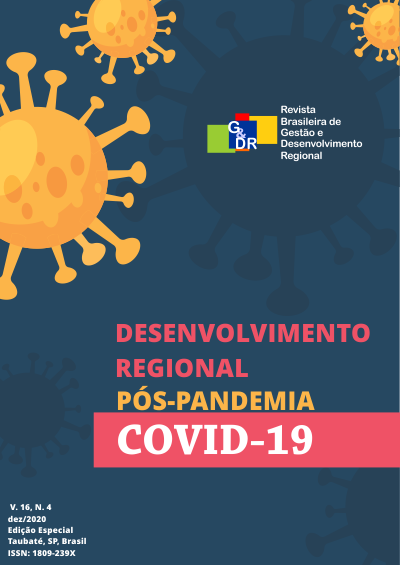REGIONAL AND SOCIAL INEQUALITIES RELATED TO COVID-19 MORTALITY IN BRAZIL
Keywords:
Covid-19, SUS, Mortality, Fiscal federalism, Public governance.Abstract
This study explored the relationship between regional characteristics and epidemiological and social factors and Covid-19 mortality in Brazil. Uncertainties surrounding the response to the pandemic include the speed at which the disease spreads, unfavorable economic and social indicators across a large part of the population, lack of leadership on the part of the federal government, and tensions between different levels of government, resulting in an unprecedented political and economic crisis. Using logistic regression, we conducted a quantitative analysis of data combined with a documentary analysis of technical and scientific evidence on the Covid-19 pandemic, public health system governance structure, and fiscal federalism related to health funding. The findings reveal differences across regions, confirming inequalities in access to intensive care services. The results also show that epidemiological and social factors contribute to increased mortality in the North and Northeast regions of the country. It is concluded that Covid-19 mortality is distributed unevenly across regions, indicating the need to adopt effective measures to reduce regional inequalities.Downloads
Published
2020-12-15
How to Cite
Pinheiro, F. M. G., Martinho, R. M. L., Moreira, R. do C., & Martinho, L. A. B. (2020). REGIONAL AND SOCIAL INEQUALITIES RELATED TO COVID-19 MORTALITY IN BRAZIL. Revista Brasileira De Gestão E Desenvolvimento Regional, 16(4). Retrieved from https://www.rbgdr.com.br/revista/index.php/rbgdr/article/view/5978
Issue
Section
Artigos
License
Authors who have their papers accepted and published in the Brazilian Journal of Regional Management and Development must agree to the copyright policy CC BY https://creativecommons.org/licenses/by/4.0/.
If the article is accepted for publication, the copyright is automatically assigned to the Brazilian Journal of Regional Management and Development.
















